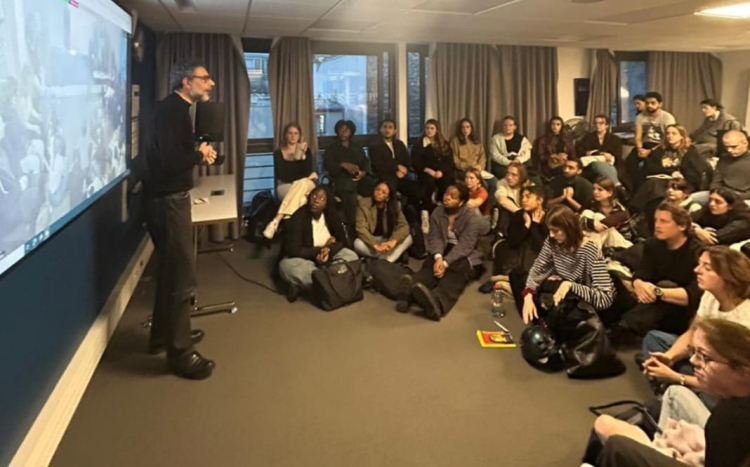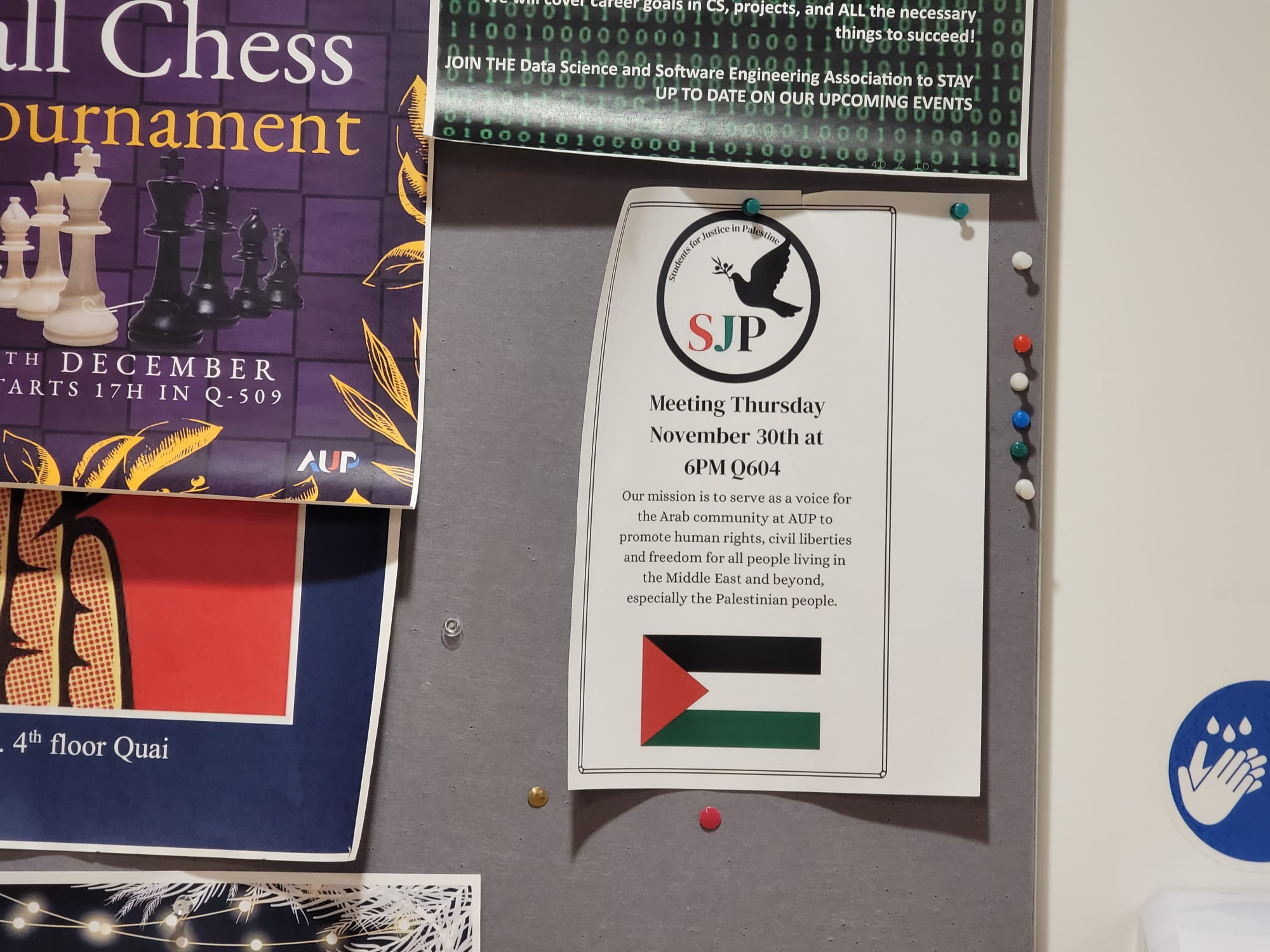Moving Beyond Neutrality

Conversation is omnipresent on campuses. It is an inevitable product of intellectually active young people interacting, discussing current global issues in relation to their learnings at school. Yet this open flow of communication is stifled sometimes. A university’s community can be and always will be pulled in multiple directions at once, but a university’s first and most important duty is to its students. In violent and world-shaking times, the university has an obligation to respond in a way that is supportive to its student population, that makes them feel seen, that makes them feel like the place where they spend the majority of their time is one that has their best interests at heart. In the face of global tragedy, students can feel like support for them is eroded. Such an instance arose at The American University of Paris during the catastrophe unfolding in Gaza.
An institution such as AUP has complicated politics of its own to contend with. Its stance on issues is influenced by a myriad of factors: it could be donors’ deep pockets and dialogical desires, or perhaps France’s public political position plays a part. This task is a complicated one, but nonetheless necessary. In response to the outbreak of violence in Israel and in Gaza on October 7th, AUP president Sonya Stephens attempted to vocalize the university’s support for those affected in an email sent to students, faculty and staff on October 11th. In speaking with students across campus, the sentiment among many is that the outreach was lackluster and dispassionate; instead full of vocabulary that attempts to neutralize a situation that does not need neutralization. Beyond just writing an email, universities have a responsibility to engage further with global issues that impact their whole student body. It is clear from the mixed emotions stemming from this instance in particular that students want more support.
In fact, many students and staff members felt isolated by the university’s lack of acknowledgment of loss of life on all fronts of the conflict. Professor Ziad Majed, Program Coordinator for Middle Eastern Pluralities at AUP, stated, "I have no doubt of the President's [Stephens] good intentions when it comes to a balanced approach, or that she is sympathetic to all human suffering. However, we all have our own political stances, our own life stories, our own experiences, our own families and our own journeys. Each of these unique paths informs our perspective on violence of this magnitude. They influence the degree to which we are willing to respond and act to address atrocities such as those witnessed in and broadcast from Gaza. Yet there are common themes that should not be compromised: human rights, international humanitarian law, and the equal value of life for all."
The university lauds its diversity, so the impartial reply surprised students and stirred their desire for dialogue. Beyond constructive criticism of the university's communication, students felt inspired to create the support among themselves that was lacking in official channels.
Leen Al-Daqqaq, a student of International Comparative Politics and Middle Eastern Pluralites at AUP, was unsettled by the absence of support she felt from AUP. She used words like “isolating” and “marginalizing” when asked about the impact of the dispassionate response by the university on Arab, and specifically Palestinian, students. She was "honestly touched" when Professor Majed offered warm words of support and encouragement to students he thought might have felt exactly that—isolated. Students across the school caught wind of wider dissatisfaction and unified to bolster one another. Majed's openness and steadfast dedication to communicating the facts is what they had hoped for from the university. Instead, they had to create it themselves.
With the support of the History and Politics Board and many of her peers, Al-Daqqaq organized a talk by Professor Majed that offered a historical perspective on the development of the situation in Israel and Palestine. The emphasis of the lecture was that history did not begin on October 7th. The atmosphere was attentive and eager; the room was packed wall-to-wall and the floor was full of students sitting cross-legged, ready to learn. The Board reported that there was some reluctance to the organization of this event; Al-Daqqaq and her peers were warned that eyes were on it. The university likely feared uncontrollable debate and rising tensions between students. Al-Daqqaq considers the organization of this event, in attendance by over 50 students, to be an important show of enthusiasm by the student body. She remarked that it is the university's responsibility to motivate students to advocate and get involved. This community was not created by the university’s response to the violence, instead, it was ignited by the students themselves.
The talk was not enough, Al-Daqqaq and her co-founder, Helena Ladah, created Students for Justice in Palestine (SJP), which they describe as a “safe space” for not only Arab and Palestinian students, but any students who wish to support the cause for a cease-fire and a free Palestine. SJP’s first meeting was on November 30th, and Al-Daqqaq explained that she expects good progress and longevity from their organization. With the help of students from the very established club at AUP, Black and Abroad, SJP hopes to gain traction and attract like-minded students who seek to have a place to discuss their feelings, their fears and their frustrations, said Al-Daqqaq.
When asked more broadly about what a university’s role in all of this is, Al-Daqqaq emphasized that “the best way to learn is through our educational institutions." She agreed that universities should not take a political stance on any global tragedy, but she emphasized the importance of opening room for dialogue. As the deaths of thousands continue, it is becoming all the more critical that the political be separated from the humanitarian. Since its original communication, the university has not addressed the violence further. Avoiding the topic in classrooms and in official communications, Al-Daqqaq concluded, might only increase tensions between students and amongst staff.
As a liberal arts university and as one that puts its internationality on a pedestal, being impassive in the light of large-scale international conflicts and violence is not the answer. The positive impact that open discussion and ongoing education have had over the last two months demonstrates the importance of open dialogue among faculty, staff and students. The answer is thus permission, and indeed encouragement, of engagement from faculty, staff and students. It is inviting participation in and advisement on university communication by people with differing perspectives. It is offering some kind of tangible avenue of action. It is, above all, encouraging the learning process.








